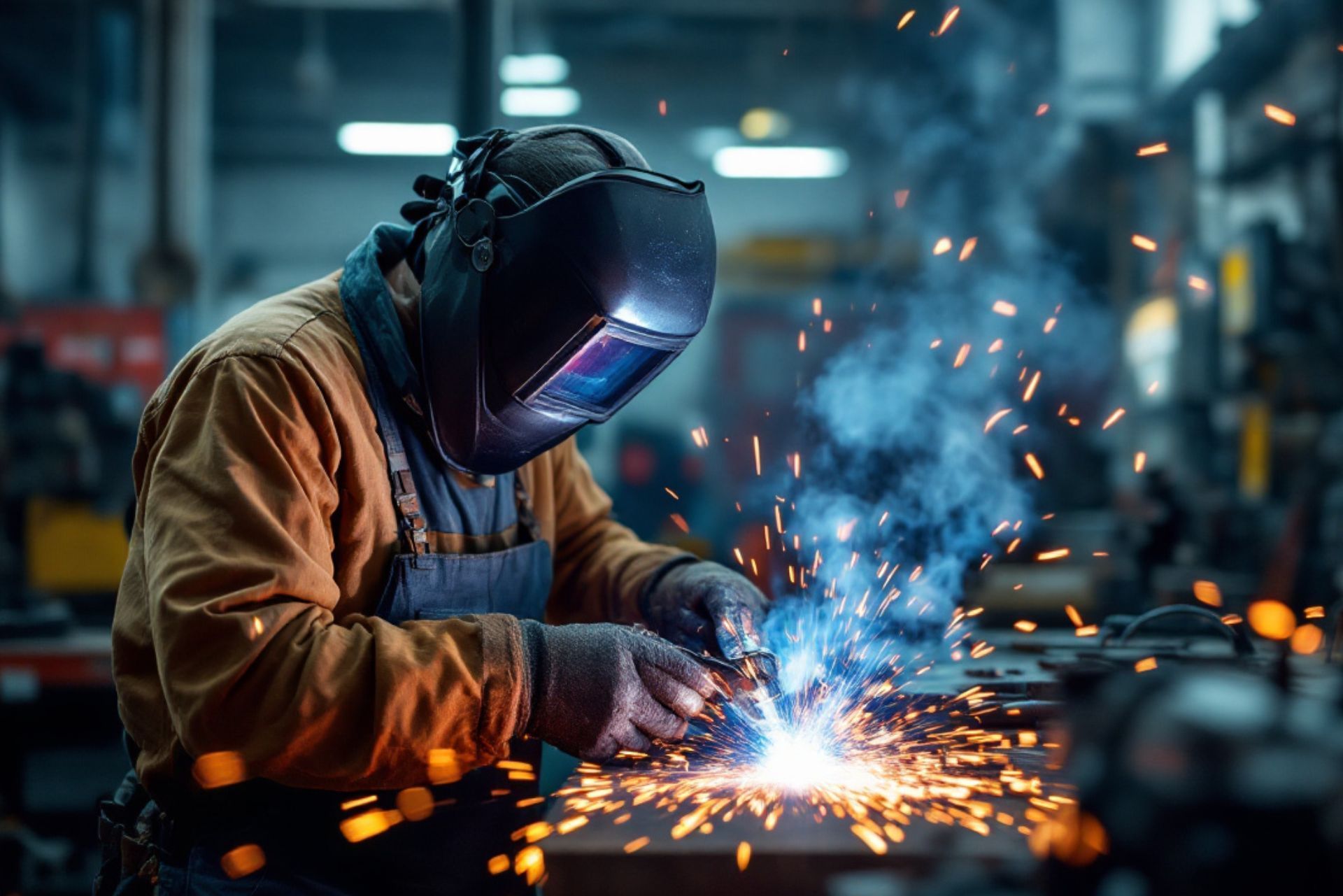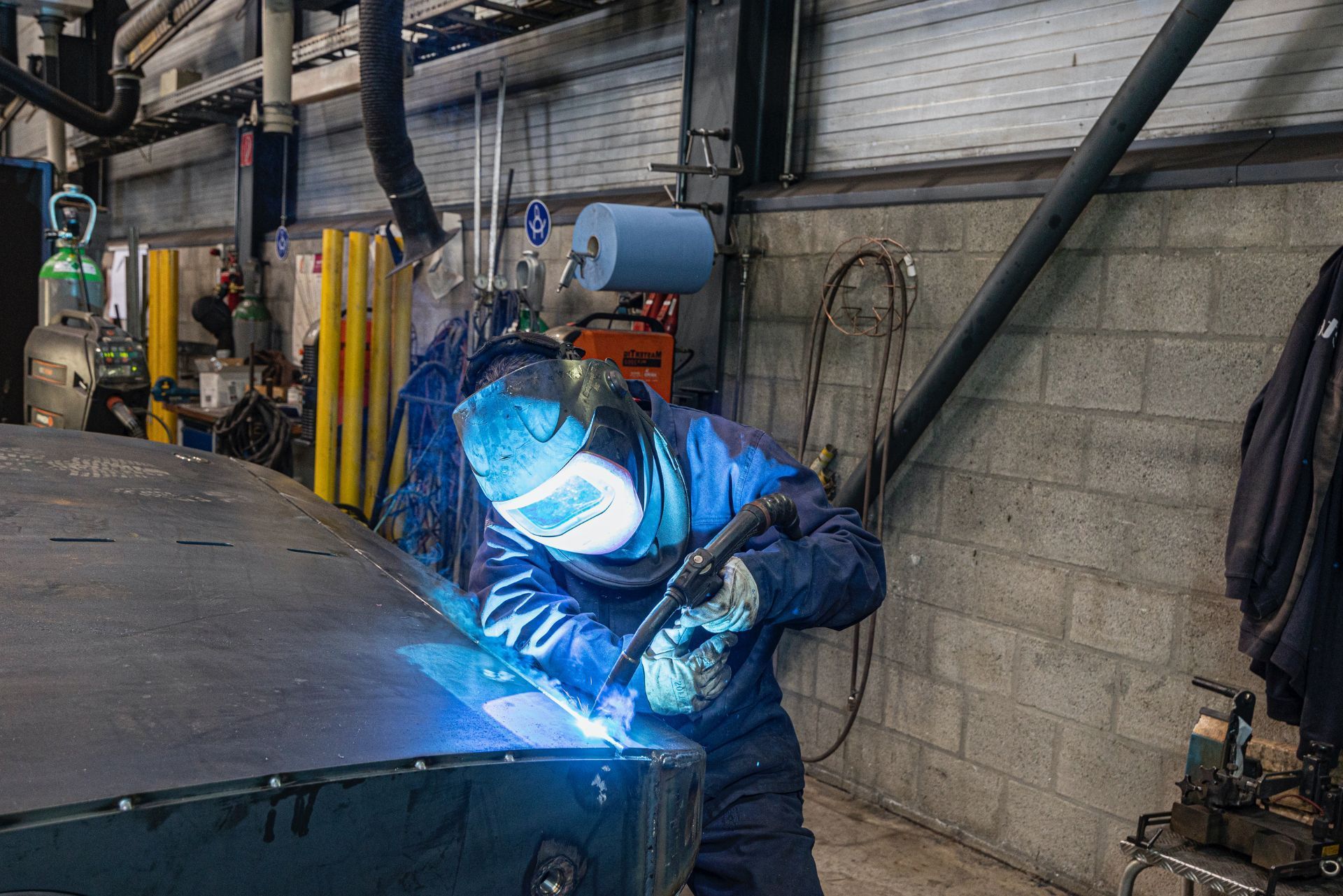Top 3 Recommended Policies
Index
Contact Us
Phone
Location
When it comes to welding, whether you are a professional or a hobbyist, ensuring proper insurance coverage is essential. In the state of Indiana, various options are available specifically tailored for welders. This article aims to provide a comprehensive overview of Indiana welder insurance, covering its importance, key features, choosing the right provider, and common misconceptions.
Understanding the Basics of Welder Insurance
Welder insurance is a specialized form of coverage designed to protect individuals and businesses involved in welding activities. This insurance is crucial because it addresses the unique risks that welders face, including workers' injury, equipment damage, and third-party liabilities.
What is Welder Insurance?
Welder insurance encompasses several types of coverage, including general liability insurance, commercial auto insurance, and equipment insurance. Each coverage type plays a significant role in ensuring welders can operate safely and securely. For example, general liability insurance protects against claims for bodily injury or property damage to others, while equipment insurance safeguards against loss or damage to welding equipment. Additionally, some policies may offer coverage for specific welding processes, such as MIG or TIG welding, which can have distinct risks associated with them. This tailored approach allows welders to choose the coverage that best fits their specific needs and operations.
Why is Welder Insurance Important?
The importance of welder insurance cannot be overstated. Welding is an inherently hazardous occupation; accidents can and do happen. Having the right insurance ensures that if an injury occurs or equipment fails, the financial burden is minimized. Without insurance, welders could be held liable for damages or medical costs that could be financially devastating. Moreover, many clients and contractors require proof of insurance before hiring a welder, making it not just a safety net but also a vital aspect of business credibility. This requirement can open doors to more job opportunities and larger contracts, as it demonstrates professionalism and a commitment to safety standards.
Furthermore, welder insurance can also provide coverage for business interruptions. In the event of an accident or equipment failure, a welder may be unable to work for an extended period. Business interruption insurance can help cover lost income during this downtime, ensuring that the welder can maintain their financial stability while recovering or repairing equipment. This aspect of coverage is particularly important for independent welders or small businesses, where every job is critical to sustaining operations. Overall, welder insurance is not just about compliance; it is a strategic investment in the longevity and success of a welding business.
Key Features of Indiana Welder Insurance
Indiana welder insurance comprises various key features that make it suitable for welders operating in the state. Understanding these features can empower welders to select the best policy for their needs.
Coverage Options for Indiana Welders
Welder insurance in Indiana typically includes various coverage options, such as:
- General Liability Insurance: Covers claims related to injuries or damages to third parties.
- Workers' Compensation: Offers compensation for work-related injuries sustained by employees.
- Commercial Property Insurance: Protects against damage or loss of equipment and tools.
- Professional Liability Insurance: Covers negligence claims related to professional services.
- Commercial Auto Insurance: Insures vehicles used for business purposes.
Each of these coverage types addresses a different risk welders may encounter, making it crucial to understand how they work in tandem to provide comprehensive protection. For instance, general liability insurance is essential for safeguarding against unexpected accidents that could occur on job sites, while workers' compensation is vital for ensuring that employees receive medical care and lost wages if they are injured while performing their duties. Additionally, commercial property insurance is particularly important for welders who rely on expensive equipment and tools, as it can help mitigate the financial impact of theft or damage.
Cost of Welder Insurance in Indiana
The cost of welder insurance in Indiana varies widely based on several factors, including the nature of the work, size of the business, claims history, and the specific coverage options selected. On average, welders may expect to pay anywhere from $500 to $2,000 annually. However, more complex operations or those with higher risks may face higher premiums.
Researching different policies and obtaining multiple quotes can help in finding the best coverage at the most competitive price. Understanding the cost factors involved will also help welders budget for this essential expense. Furthermore, many insurance providers offer discounts for safety training or for bundling multiple types of insurance, which can significantly reduce overall costs. Welders who prioritize safety and implement risk management practices may find that their premiums decrease over time, reflecting their commitment to maintaining a safe working environment.

Choosing the right insurance provider and policy can be an overwhelming process, but it is critical to ensure that your specific needs as a welder are met. Here is how to approach the insurance buying process effectively.
How to Choose the Right Insurance Provider
When choosing an insurance provider, consider the following tips:
- Research Providers: Look for insurance companies that specialize in coverage for welders or contractors.
- Check Ratings: Consult independent rating agencies to assess the financial stability and reliability of each provider.
- Read Reviews: Customer feedback can provide insights into the experiences of other welders with the insurance company.
- Compare Quotes: Obtain quotes from multiple providers to find the best coverage options for your budget.
- Consult an Insurance Agent: A knowledgeable agent can help navigate the various options and tailor the coverage to your needs.
Understanding Your Insurance Policy
Once you've selected a provider, it's time to dive into the specifics of your insurance policy. Understanding your coverage is essential to ensure you have the right protection in place. Key aspects to review include:
- Coverage Limits: Determine the maximum payout limits for each type of coverage.
- Exclusions: Review what is not covered by your policy to avoid surprises later.
- Deductibles: Understand how much you will need to pay out-of-pocket before insurance kicks in for a claim.
- Renewal Process: Know how your policy renews each year and any changes in terms or rates that may apply.
Fully understanding your policy ensures that you can utilize your coverage effectively whenever you need it. Furthermore, it’s beneficial to keep a copy of your policy documents in a secure but accessible location. This way, in the event of an incident, you can quickly refer to your coverage details and understand the steps needed to file a claim. Additionally, consider keeping an open line of communication with your insurance provider; they can offer valuable advice on maintaining your coverage as your business evolves.
Moreover, staying informed about industry-specific risks can also help you make more educated decisions regarding your insurance needs. For example, as a welder, you may encounter various hazards such as exposure to harmful fumes or the risk of fire. Understanding these risks can lead you to seek out additional coverage options, such as liability insurance or workers' compensation, to protect not only yourself but also your employees and clients. Regularly reviewing your insurance policy and adjusting it as necessary can ensure that you are always adequately protected against the unique challenges of your trade.
Common Misconceptions about Welder Insurance
Despite its importance, several misconceptions about welder insurance persist. These myths can lead to misunderstandings regarding the necessity and scope of coverage.
Debunking Myths about Welder Insurance
One common myth is that welders don’t need insurance if they work from home or on smaller projects. This is simply not true. Accidents can happen anywhere and in any work environment. Even seemingly minor tasks can lead to significant injuries or damages, which can result in costly legal fees or medical expenses. Furthermore, many homeowners' insurance policies do not cover business-related activities, leaving welders vulnerable to financial loss. Another misconception is that general liability insurance is enough to protect against all welding-related risks; in reality, specific coverage types, such as workers' compensation, are crucial for protecting employees. This type of insurance not only covers medical expenses for injured workers but also compensates for lost wages, ensuring that employees are supported during recovery.
Facts vs Fiction: Welder Insurance
Another prevalent myth is regarding the cost of insurance. Many assume welder insurance is prohibitively expensive; however, when compared to the potential costs of accidents or injuries, the insurance is often quite reasonable. Additionally, many brick-and-mortar insurance providers have flexible payment plans, making policies even more accessible. It's also worth noting that the cost of insurance can vary based on several factors, including the welder's experience, the types of projects undertaken, and the coverage limits selected. By shopping around and comparing quotes, welders can often find a policy that fits their budget while still providing adequate protection. Moreover, investing in training and safety equipment can sometimes lead to discounts on insurance premiums, further enhancing the affordability of necessary coverage.

Frequently Asked Questions about Indiana Welder Insurance
As you delve further into welder insurance in Indiana, you may have specific questions regarding coverage and costs. Here are some commonly asked questions to clarify doubts.
What Does Welder Insurance Cover?
Welder insurance can cover a range of incidents, including:
- Injuries sustained by the welder and their employees while on the job.
- Damage caused to third-party property during the welding process.
- Loss or damage to welding equipment due to accidents or other events.
- Legal expenses associated with claims or lawsuits arising from welding operations.
It's essential to closely review specific policies for detailed coverage information, as these may vary between providers. Additionally, some policies may offer specialized coverage options, such as equipment breakdown insurance, which can be particularly beneficial for welders who rely heavily on their tools and machinery. This type of coverage can help mitigate the financial burden of unexpected repairs or replacements, ensuring that your operations can continue with minimal disruption.
How Much Does Welder Insurance Cost in Indiana?
The cost of welder insurance in Indiana is influenced by several factors, including the scale of operations, the coverage options selected, and the overall risk profile of the business. While many small welding operations may find coverage between $500 to $1,000 annually, larger or higher-risk businesses could see premiums rise as high as $2,500 or more. Obtaining personalized quotes from various insurance providers is the best way to understand what you can expect. Furthermore, factors such as the type of welding being performed—whether it's MIG, TIG, or stick welding—can also impact the cost, as different methods carry varying levels of risk. Engaging with an insurance agent who specializes in the welding industry can provide valuable insights and help you navigate the complexities of selecting the right coverage for your specific needs.
In conclusion, having the right Indiana welder insurance is crucial for protecting your business against unforeseen events. Understanding its significance, key features, and navigating the insurance process will empower you to make informed decisions that will ultimately safeguard your welding operation.

